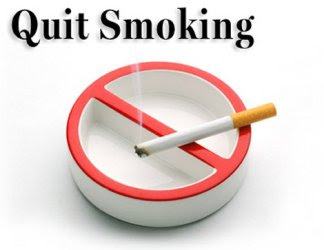Author: Dennis Simsek
Having 'clinical' depression can affect all aspects of a persons life, strangely enough during my days of dealing with depression waking up in the morning in itself was tiring, even after a good nights sleep. Our self esteem and self confidence takes a beating and that dark gloomy cloud that hangs over the heads of people that are going through depression, unfortunately can not be wished away or just float out of their lives somehow. First let's look at some reasons why people get themselves into a 'clinically' depressed state, and then look at what has worked for myself and others I work with to get back to feeling abundant again.
Reasons People Become Depressed:
Becoming Isolated - It's just natural for human beings to want to be around other people. If the option of meeting that significant other and starting a family is there we feel fulfilled, but if it's not an option, we at least want to feel the closeness that friends, co workers or certain social groups give us. The feeling of being isolated appears when we feel that we just don't belong, and this is a major reason people become depressed.
Medications - Let's remember that antidepressant medication and clinical depression in general is still very poorly understood. But if you are on some kind of antidepressant consider yourself one of the lucky ones if you don't experience side effects such as the one written on the back of my old prescription: "Fluoxetine may cause some people to be agitated, irritable or display other abnormal behaviors. It may also cause some people to have suicidal thoughts and tendencies or to become more depressed."
Chronic Stress - If you are dealing with chronic stress and anxiety it may be contributing to disrupting normal patterns of behavior, which can then lead you down the road of depression.
Candida Overgrowth - Toxins that become released into the bloodstream due to the Candida fungus in the human body can cause a multitude of symptoms, this can then lead to health anxiety and depression. As i've experienced in my own struggles in the past as well as seeing what has worked for others, curing your intestinal Candida can also cure your depression.
Childhood Abuse Or Hurt - A child who has been surrounded by abuse is much more likely to experience clinical depression at a later age then one who has not. In fact, the numbers show that 59% of physically abused children will become depressed later on in life. PTSD, learning difficulties and generalized anxiety are also part of the assortment of mental difficulties someone could experience later on in their lives.
Substance Abuse - It's estimated that 80% of people who have a chemical dependency or a certain addiction, also experience a co-occurring mental health problem such as generalized anxiety disorder or depression. Making the most of this one life that you are given, and firstly admitting that you need help is the first step to success, no one can truly create lasting change but yourself.
Loss of a Loved One - Grief is a normal emotion to the news of losing a loved one that commonly leads to major depressive disorder. Feelings of hopelessness and helplessness are all part of the grieving process.
Change - Sometimes when we lose that familiar feeling in our lives and get hit with a new job, a new marriage, a divorce, moving somewhere new, retirement etc, life can quickly become dissatisfying or dull. A seemingly positive change that has been planned for some time can bring unexpected changes that can bring about depressive episodes.
Nothing To Live For And Feeling Lost - There's nothing worse than having a stale life, something that gives you that jolt when you wake up in the morning is key for each one of us. This can come in the form of a new hobby, becoming educated about something you're interested in, taking part in a new social group, or maybe even teaching people something that you may be an expert at.
Financial Problems - Your money flow is the result of your continuous thoughts, that lead to your continuous emotions, that lead to your continuous actions. But isn't this true about everything in life? Yes, financial problems can certainly lead to depression but can be reversed for most people by applying what they already know.
Physical Illness - There is no doubt that clinical depression is a painful condition and often times occurs in association with a severe physical illness. Not only can physical illnesses lead to depression - the opposite occurs as well, which makes recognizing and treating depression all the more urgent.
The Media - With the average American exposing themselves to the media for just over 5 and a half hours per day, it's no surprise that this kind of exposure leads many into a state of depression. With the different messages being transmitted through the media that continuously reinforce aggression and other forms of risky behavior, it's no surprise that the media inspires anxiety and fear. Add to this the fact that media exposure at night time can disrupt sleeping patterns as well, and we have quite an interference in the development of our emotional and cognitive development.
Fear - It's easy to get into a pattern of negative thinking that breeds fear in us all, but the biggest obstacle that stood in my way during my 6 year struggle with an anxiety disorder was the fear of failure, which led me to live a confined and fearful life. What i've come to understand is to try something and fail, is not failure. But to not try at all, that's failure. So if the fear of failure is adding to your depressive state than understand that regret weighs more heavily on your shoulders then failure ever will.
Now That We Know What Could Be Contributing To Feeling Depressed, What can We Do About It?
The emotions that you are feeling are nothing more then a feedback mechanism. Feeling the emotion of fear for example means that the solution will come by stepping out of your feared comfort zone in a slow and systematic way. Feeling the emotion of isolation from others means that it's time you changed your approach to the situation that is isolating you from others, if financial problems are getting you down, become an entrepreneur and sell your expertise! For everything that is adding to the feelings of depression, there is an answer for, all you need to do is find the specific thing that is the cause, and listen to what kind of feedback you are getting. I've learned that the worst thing you can do is play the victim (as easy as it is to do so when depression strikes), as mentioned we get one shot at life and when the end comes I want you to look at your past and truly feel like you gave it your all each and everyday!
About the Author
Dennis Simsek (also known as the anxious athlete) is the founder of the popular End The Anxiety audio program that has helped many overcome their anxiety disorder related issues naturally. This is not a 'quick fix' solution but a proven strategy that in time will GUARANTEE your natural recovery from anxiety related issues. Visit http://www.anxietyend.com now and listen to a sample of the best anti anxiety program online.















